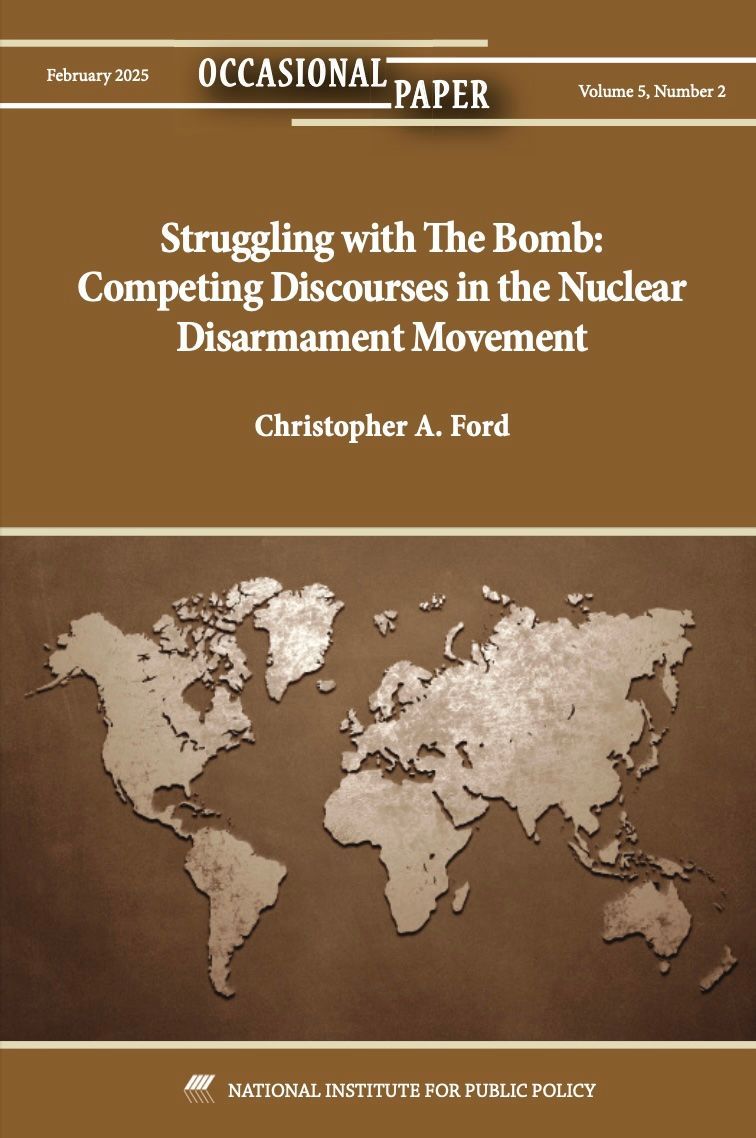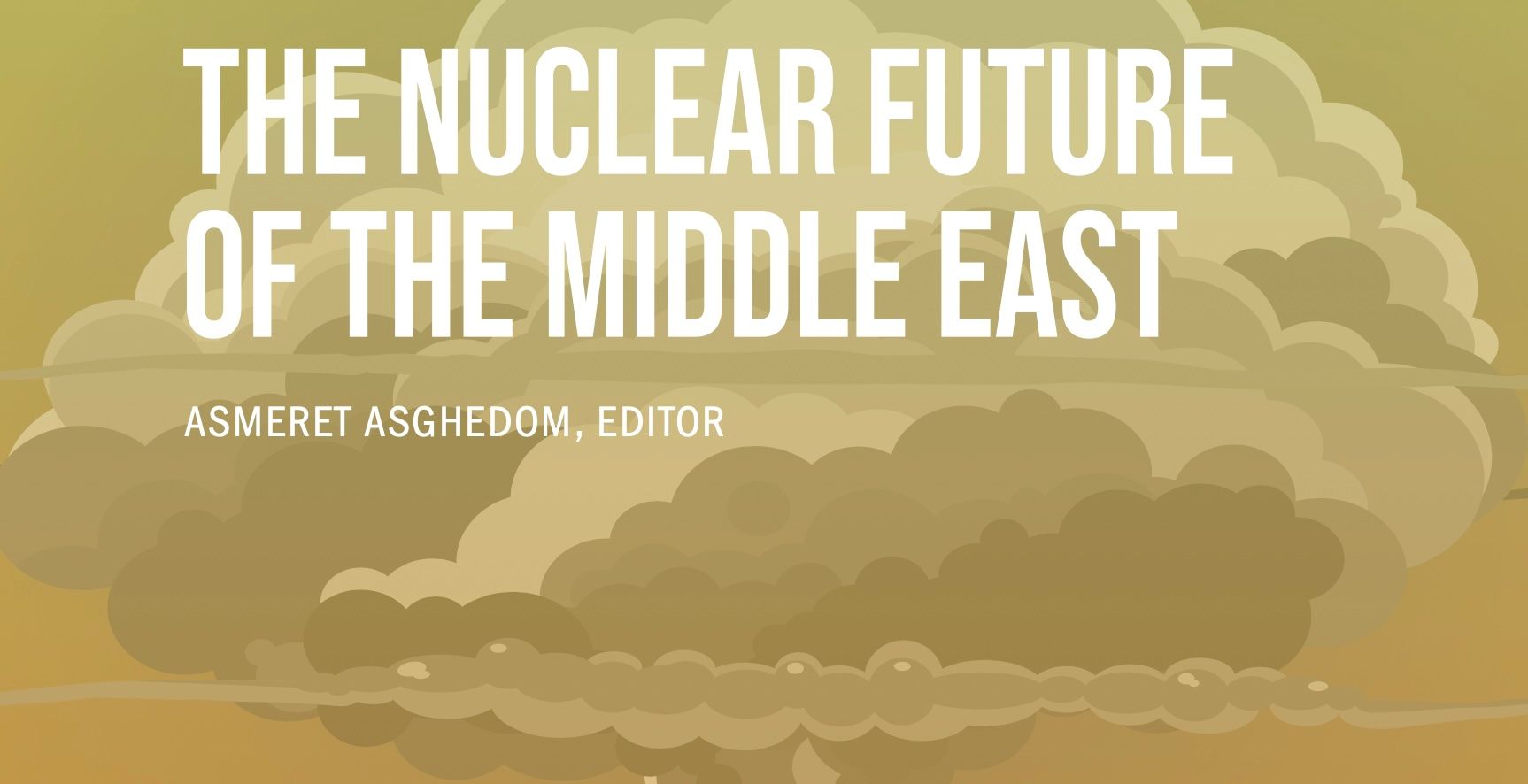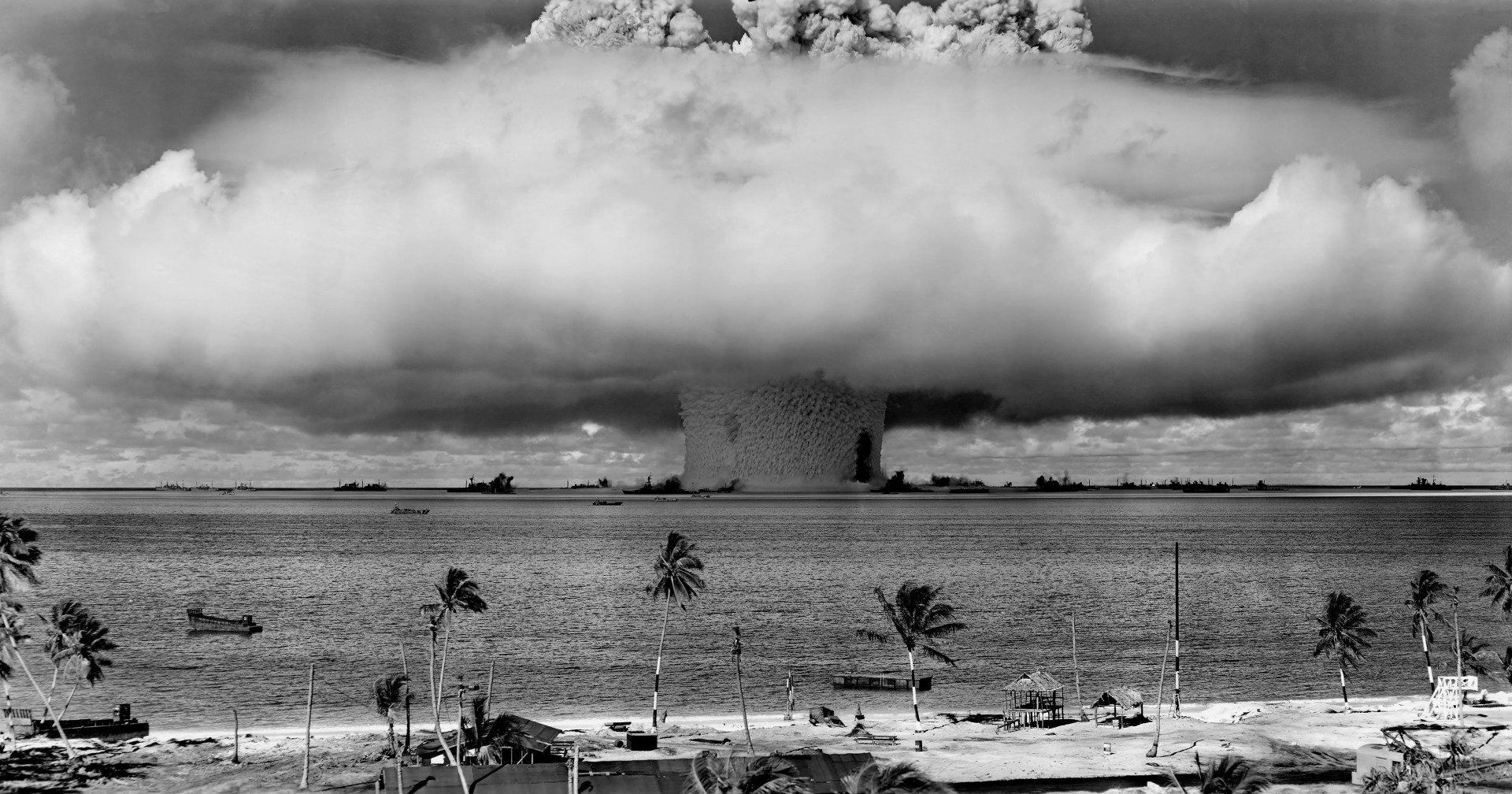The Hon. Christopher A. Ford
New Paradigms Forum -- International Security Policy Since 2009
Revisionist Challenges to Arms Control
Dr. Ford presented these remarks on March 18, 2022, at the conference on “Nuclear Deterrence and Strategic Stability: What Have We Learned?” held at the University of Virginia.
Thank you for inviting me. It’s a pleasure to be here, and to be seeing Eric [Brewer], Tom [Countryman], and Kier [Lieber] in person once again after a long while. For my contribution this morning – which of course represents only my personal views – I’d like to offer some thoughts about the challenges facing the arms control enterprise at this point in history.
In particular, I would like to emphasize three problems that recent events seem to be accentuating:
- First, the problem of compliance enforcement: the difficulty the arms control enterprise faces in ensuring that treaties are actually followed, and that violations are met with effective responses.
- Second, the problem of the “offensive nuclear umbrella”: the use of nuclear weapons threats to create tactical “space” in which to engage in regional aggression – in effect, by encouraging the belief that any effort to stop an aggressor will result in nuclear war. Such strategies, therefore, attempt to use nuclear weapons not to deter aggression but actually to enable it.
- Third, the problem of strategic revisionism: the apparent fact that some countries sometimes do not want the broad strategic stability that it is traditionally the objective of arms control diplomacy to promote.
These challenges, in fact, are not really separate ones, for the particular compliance problems of most salience today and the problem of the “offensive umbrella” are in some sense results of the problem of revisionist strategic ambition – which raises its head with both Russia and with China. So let’s look at this problematic three-way interdependency in more detail.
The Russians began violating the Intermediate-range Nuclear Forces (INF) Treaty in 2008, moving thereafter from illegal flight-testing to initial operational capability and then to full-scale production and the deployment of multiple battalions of prohibited missiles over the course of more than ten years before the United States withdrew from that agreement as a result of this Russian cheating. And though Russia essentially never complied fully with the terms of the Open Skies Treaty after it came into force in 2002, the United States did not begin treaty-compliant countermeasures until 2017, and did not withdraw until late 2020. Russia also “suspended” its observance of the Conventional Forces in Europe (CFE) Treaty in 2007, basically ignoring that instrument for years thereafter before finally ending any pretense of participation in 2015 – a year after the Russian army had invaded and annexed parts of Ukraine.
These issues are of particular salience today as the Putin regime commits almost daily war crimes in Ukraine while trying to insulate itself from accountability by rattling the nuclear sabre to scare off Western pushback while he relitigates what has called the “greatest geopolitical catastrophe of the [20th] century” by building a network of puppet states under the Kremlin’s thumb through subjugating the independent sovereign democracies that emerged around Russia’s periphery after the end of the Cold War.
Russia’s moves against Ukraine are also dealing dangerous blows to the nonproliferation regime in service of his grimly predatory ambition, by making a cruel mockery of the 1994 Budapest Memorandum. As your audience may recall, that memorialized the diplomatic deal in which Ukraine gave up the nuclear weapons left on its soil by the collapse of the USSR in return for which, among other things, Russia promised to “respect the Independence and Sovereignty and the existing borders of Ukraine” and to “refrain from the threat or use of force against the territorial integrity or political independence of Ukraine.” Against this backdrop, Putin’s war in Ukraine almost looks like an advertisement for nuclear weapons possession, which is yet another terrible effect of Russian aggression.
Putin has, it now seems, taken advantage of arms control constraints that bind others while he himself violated them in order to strengthen the “offensive nuclear umbrella” under which he is trying to create his own sad, corrupt, and kleptocratic knock-off of the Soviet Empire.
Significantly, the Kremlin’s aggression-facilitating nuclear threats today involve, in part, both (a) intermediate-range nuclear weapons Russia built in violation of the INF Treaty, as well as (b) shorter-range nuclear weapons that Moscow built after refusing to comply with its promises under the Presidential Nuclear Initiatives (PNIs) of the 1990s. And under that “umbrella,” moreover, Putin is now massacring Ukrainian civilians with forces he built up on Ukraine’s borders – an invasion force of which he publicly denied the existence until ordering it into action – in ways that make rather a joke of the ideas behind the CFE Treaty as well.
The regional nuclear asymmetries that Putin seems to think he can rely upon to create space for aggression, in other words, are ones he was able to worsen by breaking Russia’s arms control promises with essential impunity for many years – building capabilities that today permit him to threaten the theater use of nuclear weaponry while indulging in military brutality against his neighbors.
Thus are the arms control problems of compliance enforcement, nuclear-enabled conventional aggression, and strategic predation all wrapped together in a really very ugly bundle.
Nor, by the way, is this in a sense just a Russian problem. China, after all, is refusing to contemplate involvement in arms control at all, for arms limits would restrict its ability to build up its strategic and other nuclear forces in its bid for hegemony on at least the regional level. You can’t accuse China of being an arms control cheat, I suppose, because it won’t make any such promises to begin with, but that’s not precisely a badge of honor – especially since Beijing is rapidly expanding its nuclear forces in an apparent effort to create its own “offensive umbrella” in the Indo-Pacific that could give it more freedom to turn its neighbors into tributary states, perhaps starting with a Ukraine-style invasion of Taiwan.
This suggests to me that the fundamental problem of arms control in the contemporary world is in a sense actually exogenous to the arms control process itself. It doesn’t relate to the challenges of institutional design or negotiation that arms controllers like to debate – such as whether a certain capability should be covered, at what level caps should be set, or what should be said in a verification protocol.
It’s much deeper than that. The problem is that of strategic revisionism: the awkward fact that countries sometimes do not want geopolitical stability in the first place, or that they may seek to leverage strategic stability to enable regional aggression.
The classic example of this problem, of course, is arms control during the 1930s, during which period Nazi Germany, Fascist Italy, and militarist Imperial Japan all pulled out of the global arms control and disarmament process that had begun with the League of Nations and with the Washington Naval Conference in the early 1920s.
Those authoritarian regimes repudiated the arms control enterprise of their day not as a result of some defect in arms control negotiating, but simply because they did not share other powers’ objective of preserving stability. Each of those states had by the mid-1930s become a revisionist power, whose tactical objectives revolved around building up military power and whose strategic objective was territorial self-aggrandizement on an epic scale. In geopolitical terms, in other words, they wanted instability – that is, to upend the existing international order to their advantage, and they didn’t mind using force to achieve this. This doomed the interwar arms control and disarmament regime.
The salient question today, therefore, is the degree to which America’s would-be arms control counterparties actually want the sort of strategic stability that arms control aspires to foster. Are Vladimir Putin and Xi Jinping interested in serious and constructive arms control? Or is their role vis-à-vis the modern arms control world that of Adolf Hitler, Benito Mussolini, and the Japanese militarists of the 1930s?
So far, the signals are not encouraging, which raises huge questions about the future of the arms control enterprise – and ones that cannot so conveniently be blamed upon the choices of some prior U.S. administration one dislikes, or upon the toxicity of present-day American arms control politics. The locus of the problem lies with policies and strategies originating in the Kremlin and the Chinese Communist Party’s leadership compound in Zhongnanhai.
It is thus an open question whether effective arms control is actually available right now, or perhaps for some while. We ignore these dynamics at our peril.
Thank you.
-- Christopher Ford



Copyright Dr. Christopher Ford All Rights Reserved





